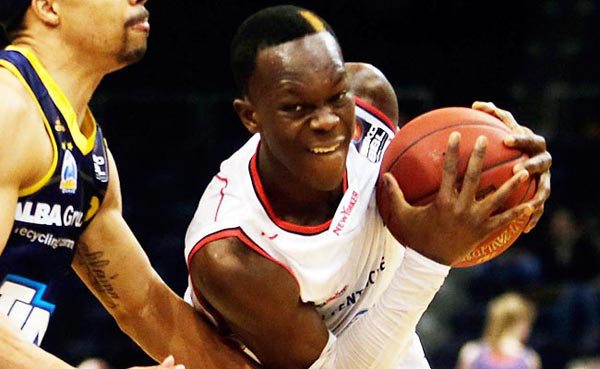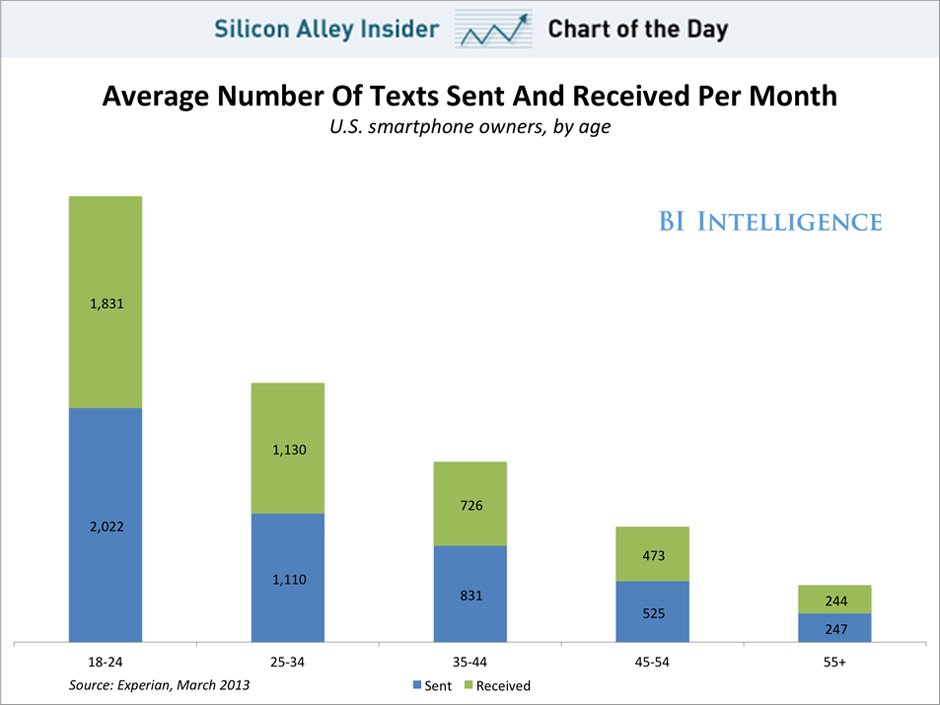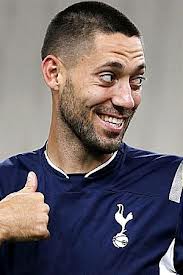I spent this past weekend in Las Vegas, (either my favorite city in the world, or one I'd like to see nuked, more on that in a moment), with my 8 Man Rotation bros Kris Dunn and Matt 'The Professor' Stollak, taking in two full days of NBA Summer League action.
Regular readers of the blog, and of the rest of the 8 Man gang, know that we think sports is an incredibly great and transparent laboratory where talent management, recruiting, coaching, and team building, (all the things that sound really 'HR-ish'), play out live, in real-time, and in public.
And the NBA Summer League is a fantastic place to see lots of these angles live, up close, and in a setting that for big-time pro sports, is almost impossible for regular fans to replicate normally. Summer league is about young talent fighting to show what they can do, for aspiring coaches and team execs to get some in-game experience, and for everyone else to play 'NBA General Manager' for a few days and sort out who will be the next star, or harder, the next 10th man on the bench for a mediocre club.
But nuggets of insight abound, so in no particular order, here are some observations or takeaways or lessons that we will probably never truly learn from the weekend's action:
1. German Rondo. One of the two individual players our crew spent the most time discussing was Atlanta Hawk first round draft pick Dennis Schroeder. Schroeder, out of Germany, resembles in body type, mannerisms, and in style of play, current NBA star Rajon Rondo of the Boston Celtics. Thus, our crew dubbed Schroeder the 'German Rondo.' Schroeder even displayed a little of the quirkiness of Rondo, who is let's just say a 'different' kind of dude when he, after discovering his shoe was untied, purposefully fouled the man he was guarding so that play would stop and he could re-tie the kick. While German Rondo was working on the double knot, the Hawks summer coach, Quin Snyder, (I really should write about that guy too one day), unceremoniously pulled GR from the game, being none too pleased with the young player's decision to foul in that spot. German Rondo
German Rondo
The HR/Talent point? With the real Rondo, and it seems like with German Rondo too, sometimes, maybe most of the time, super talented performers are going to act, think, do and say things you wish they wouldn't. But that is often the price of admission.
2. Data and the ability to use it will separate the winners and losers in almost every field. Matty the Professor was the only member of the crew interested much in actually gambling in Vegas, KD and I being mostly kind of uninterested/boring. But the real point to me was the Stollak 'system' at blackjack that Matt tried to explain to me that I really can't understand, but seems to work for him. The point? It is a new world my friends - the folks that can figure out how to analyze data, think about problems through a lens of information and likely outcomes - they are the ones that will be telling us all what to do in a few years. The geeks took over the world in the last decade, the next one will belong to the quants.
3. Every job is creative. I probably dropped in on three different casinos on the trip and of the hundreds of interesting observations one can glean from the combination of gambling, alcohol, lights, sounds, and despair - how about this one - that creativity matters in every job. Every casino had scores of video slot machines, each one having its own theme or 'creative' behind it to try and interest and entertain the player, (so they will lose more coin). The best one I saw was a Van Helsing machine, (pic on right). For whatever reason I found it incredibly interesting that somewhere there was a meeting in the video slot making company where someone said 'I know, what about Van Helsing?', and some decision maker type shouted 'Yes!' You want to feed this machine a $20 spot, right?
You want to feed this machine a $20 spot, right?
4. Context is everything. How you stack up depends on who else is in the pool. And if you are having trouble standing out, you either need to get better, (hard), or broaden the scope of who you're being compared to in order to look better, (also hard, but probably less overall work). Or said differently, if you want to feel a little better about your life choices, (as shaky as they may have been), take a stroll through a Las Vegas hotel lobby anytime between 4AM and 6AM. Not a lot of 'high achievers' out and about I would bet.
5. Not all progress is good. A recent trend that I think is pretty ridiculous is the increase in hyphenated last names. You've seen more of them in the last 10 years I bet than in the prior 50. The Summer League poster child for this affliction was Chris Douglas-Roberts, playing for the Los Angeles Lakers. CDR (what we called him since saying 'Douglas-Roberts' all the time is just a hassle), has had a checkered career. Lots of talent, great athleticism, but a seeming disdain for most of the parts of the NBA game that seem too much like 'work', (help side defense, rebounding, general hustle). I can't blame CDR's apparent squandering of all that talent on his silly last name, but it certainly doesn't help. New Moms and Dads to be? Do us all a favor and don't drop a 'hyphen' on your kids. They will thank you for it someday.
6. Your most important leaders need to think about talent all the time. If you're business rises and falls based on the talent level of your team, then your leaders better put in the time to evaluate that talent. While the Summer League rosters are made up of rookies, draft picks, and guys trying to claw their way back into the league, and very few recognizable players are actually on the court, the stands are chock full of elite NBA coaches and executives. We spotted head coaches like Eric Spoelstra, Tom Thibodeau, Mike D'Antoni, and Mark Jackson in the crowd at different times. These NBA head coaches were there to watch players that mostly won't even get training camp invitations, much less playing time when the real season starts. But the 11th man on the bench matters to a great NBA team, heck, even the 12th man on the bench matters, and if you really care about talent in your organization you don't stop caring after the starting five. And your leaders are the ones that need to set that tone.
7. Development means everyone. That, is if you are really committed to raising the talent bar in the organization. The Summer League is not just about finding which rookies and draft picks can actually play in the NBA, it's a bigger industry talent play. Announcers, halftime entertainment, anthem singers, even the guys selling T-shirts - it's all about building a pipeline and figuring out who is ready to step-up. Sure, some of the 'performances' were a little rocky, but that is why you work out the new talent on a smaller scale, in a setting that is close enough to the real thing, but one where there is opportunity to learn, and not a lot of downside if you fail. Mess up the national anthem at the NBA All-Star game? You will be a YouTube sensation within five minutes. Make the same fool of yourself in front of 1200 fans in Summer League? You will have a laugh and the ability to bounce back much more easily. Young and inexperienced talent almost always benefits from these smaller stakes kinds of plays.
8. Your city (might be) gone. At dinner one night the 8 Man crew, joined by special guest and longtime 8 Man friend Jennifer McClure, engaged in a pretty spirited discussion about our least favorite American cities, i.e. which one would you take out with a tactical nuclear strike if you were forced to pick one. There were a wide range of opinions and options slung around the table, (someone does not like New Orleans for example), but the oddest choice to me was when Jen dropped 'Las Vegas' as her pick for total annihilation. Odd in that we were having that discussion in Las Vegas. What city would you most want to take out if given the opportunity? Hit me up in the comments.
9. There's power in numbers. KD nailed this on his Summer League recap post as well. Next year the 8 Man Rotation Summer League trip back to Las Vegas is already on, and we want to go big. So that means you are invited. Yes, I mean you. Bros, gals, HR nerds - everyone. Hit me up for details, or let me know you want to join our super-exciting NBA Summer League Facebook group where we will be sharing all the information to get ready for next summer.
Ok, at just over 1,500 words I am out. But just remember one last nugget from Sin City - there, and I suppose everywhere - you always want just the right amount of wrong, if you catch my meaning.


 Steve
Steve





